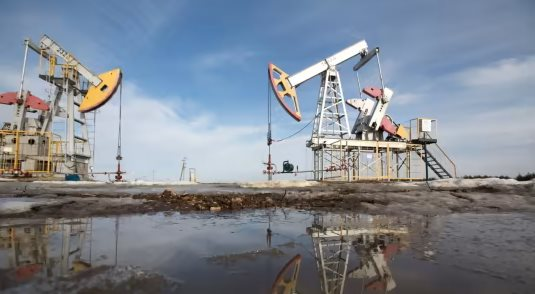Iran’s Oil Exports Soar Despite Sanctions

Illustrative photo
Iran exported more oil in the first quarter of 2024 than at any time since 2018, according to the Financial Times. The country’s crude sales also earned it $35 billion in revenue in 2023, even as it remains under heavy sanctions.
Former US President Donald Trump reimposed sanctions on Iranian crude in 2018. He withdrew the US from the nuclear accord known as the Joint Comprehensive Plan of Action (JCPOA) that the US and Iran reached in 2015.
Tehran sold an average of 1.56 million barrels per day in the first quarter, mostly to China, the highest level since the third quarter of 2018, according to data firm Vortexa.
Iran’s success in exporting crude underscores the challenges facing the US and the EU as they seek to pressure Tehran over the conflict in Israel.
“Iran has mastered the art of sanctions evasion,” said Fernando Ferreira, the head of risk at US-based energy consultancy Rapidan Energy Group. “When US sanctions bite, they just pivot to China.”
In Tehran, the state-run Tasnim News Agency said Wednesday that the country’s oil industry had found ways to circumvent the sanctions, adding that its focus on China as its main customer had largely shielded it from Western pressure.
The US has recently begun targeting individual oil tankers suspected of carrying Iranian crude, sanctioning two vessels in February and another 13 in April, said Armen Azizian, a senior analyst and sanctions expert at Vortexa. But he said the impact on Iran’s oil exports has so far been minimal.
The size of the fleet used by Iran to ship its oil has grown by 20% over the past year to 253 vessels, and the number of supertankers capable of carrying 2 million barrels of oil has doubled since 2021, said Azizian.
According to Kpler, which tracks oil tankers worldwide, nearly all of Iran’s oil sold this year has gone to China, and a successful enforcement of sanctions could destabilize not only the oil market but also US-China relations.
China relies on Iran for about a tenth of its imported oil but does not process it through its state-owned oil companies but rather through smaller private refiners.
“We can sell our oil wherever we want with minimum discount,” said Iranian Oil Minister Javad Owji.
Soaring shale oil production over the past decade has made the US the world’s largest producer, giving Washington more leverage in its sanctions against other crude exporters. On April 17, it reimposed sanctions on Venezuela, another member of OPEC.
The Biden administration has also been willing to release crude from its Strategic Petroleum Reserve and has indicated that it could do so again if global prices spike higher and push up domestic gasoline costs.
Source: FT, Oilprice












